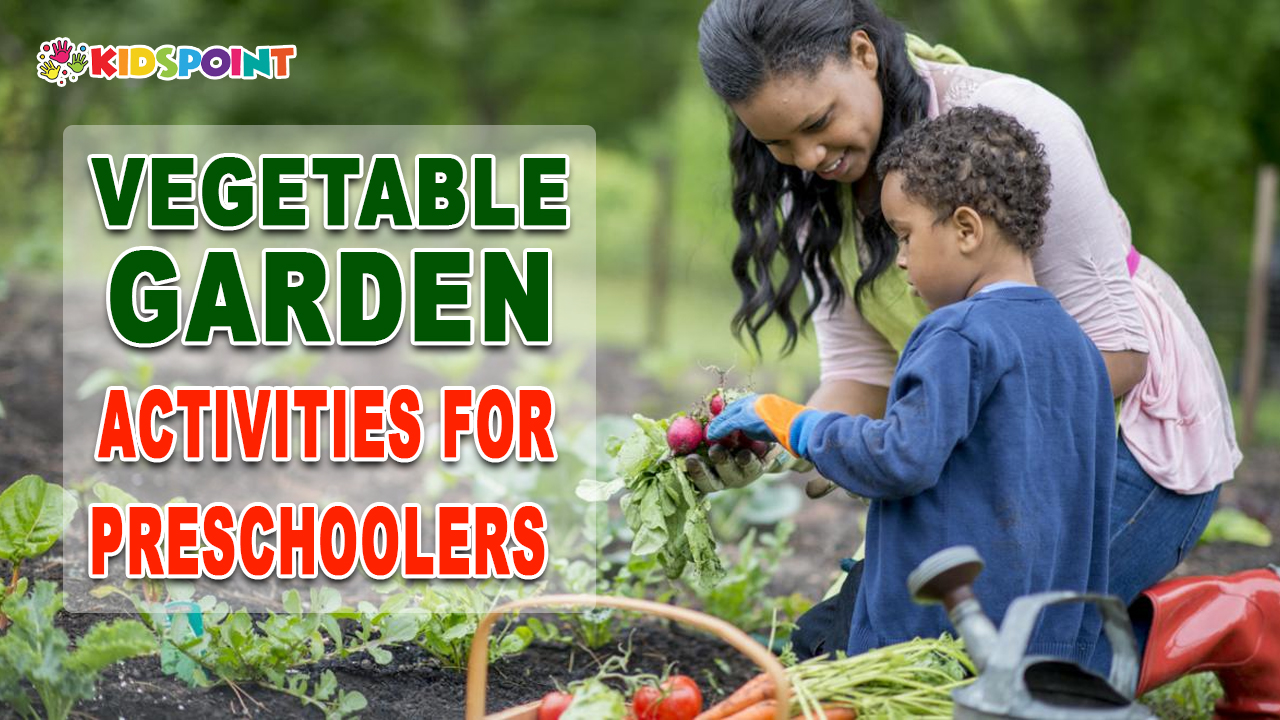In today’s fast-paced digital world, fostering a connection with nature is more important than ever, especially for young children. One fantastic way to introduce preschoolers to the wonders of nature is through vegetable gardening. Not only does it provide a hands-on learning experience, but it also promotes healthy eating habits and instills a sense of responsibility and patience. In this guide, we’ll explore a variety of fun and educational vegetable garden activities specifically tailored for preschoolers, brought to you by The Kids Point.
Planning and Preparing
Before diving into the garden activities, it’s essential to involve preschoolers in the planning and preparation stages. This helps them develop a sense of ownership and understanding of the process. Start by discussing what vegetables they would like to grow and why. Encourage them to think about their favorite foods and how they can grow them in their own garden.
Next, take them on a tour of the garden space, whether it’s a backyard plot, raised beds, or even containers on a patio. Teach them about the importance of sunlight, soil, water, and space for plants to grow healthy and strong. Allow them to help with tasks such as clearing the area, adding compost or soil, and planting seeds or seedlings.
Seed Exploration
Seed exploration is a wonderful activity to introduce preschoolers to the concept of plant life cycles. Gather a variety of vegetable seeds, such as beans, carrots, lettuce, and tomatoes, and provide magnifying glasses for closer inspection. Encourage children to examine the different shapes, sizes, and textures of the seeds. You can also discuss how seeds germinate and grow into plants.
To make the activity more interactive, create a seed sorting game where children categorize seeds based on various attributes like color, size, or shape. This not only reinforces observational skills but also enhances cognitive development.
Planting Seeds
Once children have explored different seeds, it’s time to get their hands dirty and plant them! Provide each child with a small pot or container filled with soil and guide them through the planting process. Show them how to make a small hole in the soil, place the seed inside, and cover it gently with soil.
As they plant each seed, discuss what the seed needs to grow, such as water, sunlight, and nutrients from the soil. Emphasize the importance of taking care of their plants and checking on them regularly. This hands-on experience helps children understand the responsibility involved in gardening.
Garden Maintenance
Garden maintenance activities offer preschoolers opportunities to develop fine motor skills and learn about plant care. Assign age-appropriate tasks such as watering plants, pulling weeds, and gently turning over soil. Teach them how to identify common garden pests like insects and how to deal with them using natural methods.
Engage children in sensory experiences by encouraging them to touch, smell, and taste different herbs and vegetables in the garden. This not only stimulates their senses but also fosters a deeper connection with nature.
Garden Art and Creativity
Vegetable gardens provide endless inspiration for creative activities. Encourage preschoolers to express themselves through garden-themed art projects. Set up a painting station outdoors and provide brushes, watercolors, and paper for children to create botanical masterpieces.
Additionally, you can incorporate natural materials found in the garden, such as leaves, flowers, and twigs, into arts and crafts projects. Help children make leaf rubbings, flower crowns, or nature collages using their garden treasures.
Harvesting and Tasting
One of the most rewarding experiences in vegetable gardening is harvesting the fruits of labor. When the vegetables are ready to be harvested, involve preschoolers in the process. Teach them how to harvest vegetables gently without damaging the plants.
After harvesting, set up a tasting station where children can sample the fruits and vegetables they’ve grown. Encourage them to describe the taste, texture, and color of each vegetable. This not only reinforces healthy eating habits but also celebrates their gardening achievements.
Garden Journaling
Encourage preschoolers to document their gardening journey through journaling. Provide each child with a notebook or journal where they can write or draw about their experiences in the garden. Encourage them to record observations, draw pictures of their plants, and write about any discoveries they make.
Journaling helps children develop language and literacy skills while also fostering reflection and critical thinking. It serves as a valuable tool for tracking plant growth and understanding the natural world around them.
Engaging preschoolers in vegetable garden activities provides numerous benefits beyond just growing vegetables. It teaches valuable life skills such as responsibility, patience, and teamwork while fostering a deeper appreciation for nature and healthy eating habits. By incorporating these activities into preschool curriculum or home environments, we can inspire the next generation of environmental stewards and garden enthusiasts. With The Kids Point, let’s cultivate green thumbs and healthy habits that will last a lifetime.


